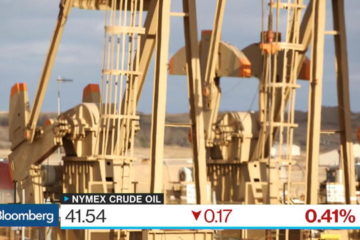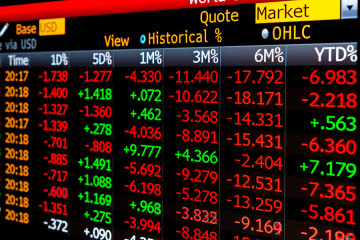Bloomberg Business: Wheat’s Roller-Coaster Ride Fuels Biggest Swings in Three Years
©2015 Bloomberg News
NM58JC6K50Y1
(Bloomberg) — Wheat traders are suffering from whiplash.
Prices swung more than 3 percent on five occasions in the past nine days, the first time that’s happened since 2011, according to data compiled by Bloomberg. A drought spreading over the U.S. plains sent Chicago futures to the biggest one-day gain this year, while data showing ample grain stockpiles erased most of the advance the next day. Weather conditions are coming to the forefront as crops in the main growing areas of the Northern Hemisphere emerge from winter dormancy and enter key growth stages that determine production. At the same time, speculation over whether a Russian tax on wheat exports will be extended and the effects of the weakening euro is adding to volatility. “Market participants don’t really know if they’ve got to buy or if they’ve got to sell,” Benjamin Bodart, a director at market consultant CRM Agri-Commodities in Newmarket, England, said by phone. “The next major factor to keep an eye on is the weather.”
Wheat futures rose 3.3 percent to $5.285 a bushel on the Chicago Board of Trade, the global benchmark, on Wednesday. Prices slumped 13 percent last quarter, the sixth-worst performance among the 22 raw materials tracked by the Bloomberg Commodity Index. Wheat sank 3.5 percent on Tuesday, following losses in corn. The U.S. Department of Agriculture issued a report that showed corn stockpiles on March 1 were bigger than analysts expected and the largest for the date since 1987.
Kansas Drought
The decline trimmed a 4.4 percent rally in wheat the previous day on concern over the health of the next harvest. The U.S. Great Plains is experiencing drought, with crop conditions in Kansas, the top producing state, deteriorating in the most recent week, government data show.
The 10-day historical volatility for wheat was 49.6 on Wednesday, double the level from March 19, according to data compiled by Bloomberg. There are bigger swings ahead if euro falls and Greece’s place in the European Union remains uncertain, Bodart said. The currency’s decline has made EU exports more attractive, with wheat shipments accelerating to the fastest pace in at least a decade, according to license data from the 28-country bloc. A question mark over what will happen to the tax on supplies from Russia, the fourth-biggest wheat exporter last year, is also driving volatility, said Matt Ammermann, a commodity risk manager at INTL FCStone. While the government said the tax will be lifted June 30, there’s concern it will be extended if the weather worsens or food inflation increases, he said. “It’s not black and white,” Ammermann said by phone from Plymouth, Minnesota. “It’s definitely not a clear situation trying to outguess what the Russian government wants to do.”
To contact the reporter on this story: Whitney McFerron in London at wmcferron1@bloomberg.net To contact the editors responsible for this story: Lynn Thomasson at lthomasson@bloomberg.net Nicholas Larkin







No Comment